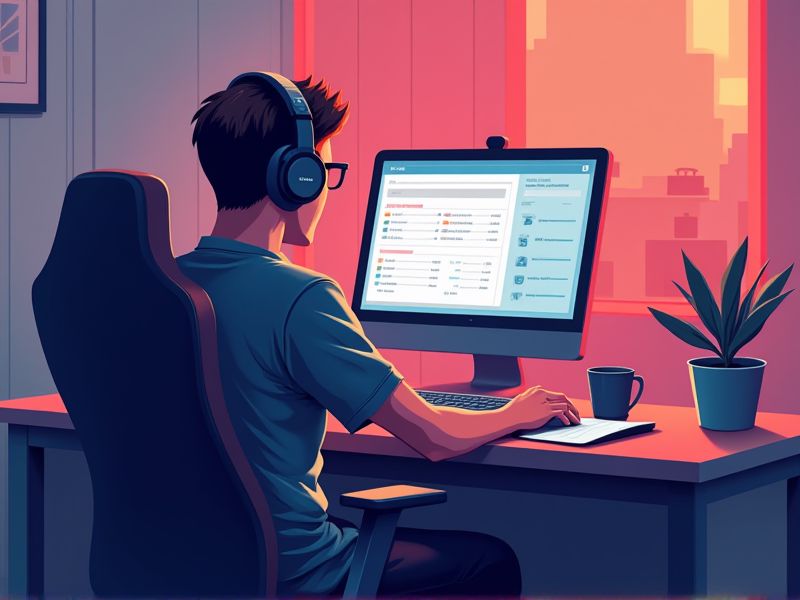
Thomas Edison's quote, "I have not failed. I've just found 10,000 ways that won't work," can be applied to improving in Apex Legends. Players can experiment with different strategies and Legends, learning from each failure to refine their gameplay. For instance, trying out various team compositions, such as combining Ballistic, Vantage, and a support Legend like Conduit, can help identify effective tactics. By persistently practicing and adapting, players can develop the skills needed to succeed in Apex Legends.
HOW TO BE BETTER AT APEX
Master map layouts
Study each part of the map by reviewing in-game movements and key pickup locations to build a mental layout that enhances your decision-making. Analyze professional gameplay data to identify common strategies and high-traffic areas, which can guide your rotations during matches. Practice running through maps in custom games to internalize various routes and understand where engagement hotspots occur. Regularly update your map knowledge by noting changes after patches or updates, ensuring your tactics remain effective.
Perfect aiming routines
Consistently warm up with a variety of drills in the training mode to build muscle memory, ensuring each motion is deliberate and refined. Regular practice with target tracking exercises improves reaction time and precision, creating a direct feedback loop between performance and practice adjustments. Fine-tuning your sensitivity settings based on real-game data minimizes over- or under-aiming, directly translating to improved control in live engagements. Integrating data-based analysis of your gameplay into your routines allows you to identify imperfections and systematically build a more consistent aiming technique.
Refine weapon selection
Understanding your playstyle is essential when refining weapon selection in Apex Legends, as each weapon's characteristics can directly impact your performance and adaptability in different combat scenarios. Evaluating factors like damage output, fire rate, and range helps you match the weapon to your preferred engagement style, whether it's aggressive close-quarters or strategic long-range. Emphasizing versatile load-outs with complementary attachments maximizes each weapon's potential and ensures you have the right tools for specific in-game challenges. Experimenting in various modes and analyzing performance data enables you to fine-tune your choices, ultimately leading to more effective engagements and overall improved gameplay.
Enhance situational awareness
Enhancing situational awareness in Apex enables you to anticipate enemy movements and manage risk effectively during engagements. Constantly monitoring visual and auditory cues helps you respond quickly to incoming threats or opportunities for counterattacks. Leveraging data from the minimap and sound direction can provide critical information on enemy positions, leading to better decision-making. This proactive approach to understanding your surroundings directly improves your reaction time and overall performance in intense combat scenarios.
Optimize movement mechanics
Fine-tune your sensitivity settings within recommended ranges--around 2.0 to 2.5 horizontally--to create a data-backed foundation for rapid and precise input. Incorporate sliding and advanced jump techniques during training sessions, as extended slides maintain momentum and disrupt enemy aim. Conduct regular custom game drills to build muscle memory often reflected in higher kill rates and increased survivability during engagements. Integrate wall-running and bunny hopping practice into your routines, establishing multi-directional agility that directly correlates with improved performance in fast-paced encounters.
Communicate efficiently
Clear, concise callouts during gameplay help ensure that every team member understands the situation immediately. Using pings, markers, and quick chat commands effectively reduces ambiguous instructions and speeds up responses. Active listening and repeated confirmations further guarantee that strategies are correctly executed. Efficient communication ultimately minimizes errors and maximizes team coordination in Apex.
Coordinate team strategies
Start by reviewing the map layouts and common rotation paths with your team to anticipate enemy moves and coordinate ambushes. Use clear, concise communication, relying on both verbal calls and in-game pings, to ensure every team member is aware of enemy positions and coordinated strategies. Assign specific roles so each player capitalizes on their strengths, ensuring balanced coverage on defense and aggressive pushes during offense. Regularly analyze match data and highlight moments of success or failure to refine tactics, reinforcing strategies that statistically improve team coordination over time.
Adapt gameplay tactics
Adaptability is key in Apex Legends, and tailoring your tactics based on opponent behavior can drastically enhance your gameplay. Analyzing your previous matches helps pinpoint weaknesses and informs adjustments in loadouts and positioning strategies. Experiment with alternative strategies such as repositioning and varied engagement angles to keep your opponents off balance. Leverage in-game performance data to continuously refine your approach, ensuring you remain responsive to the evolving meta.
Manage inventory effectively
Focus on quick decision-making by familiarizing yourself with each item's function and practical value. Organize your inventory based on immediate needs, keeping crucial items like shields, ammo, and healing supplies readily accessible. Regularly discard or swap low-utility items to prevent clutter, ensuring there's room for valuable upgrades during combat shifts. Practice assessing and managing your inventory between engagements, using data from each match to fine-tune your item priorities and overall strategy.
Analyze match performance
Record comprehensive gameplay data to measure key metrics such as damage dealt, survival time, kill-to-death ratios, and positioning efficiency. Use in-game replays and heatmaps to correlate specific tactical decisions with both successful outcomes and errors, which helps isolate the causes behind wins and losses. Focus on comparing various match segments to determine which strategies consistently yield better results, transforming qualitative observations into actionable improvements. Integrating objective stats with self-assessment leads to iterative refinement of tactics, ensuring that adjustments are data-driven and aligned with clear performance benchmarks.
Summary
Mastering map layouts empowers you to anticipate enemy movement and optimize positioning, which is crucial for strategic plays. Perfecting aiming routines directly enhances your accuracy and reaction time, translating into more eliminations under pressure. Refining weapon selection ensures that you're using the best tool for each situation, maximizing your overall combat effectiveness. These focused improvements cumulatively lead to a more strategic and dominant presence in Apex, driving higher performance and success on the battlefield.
